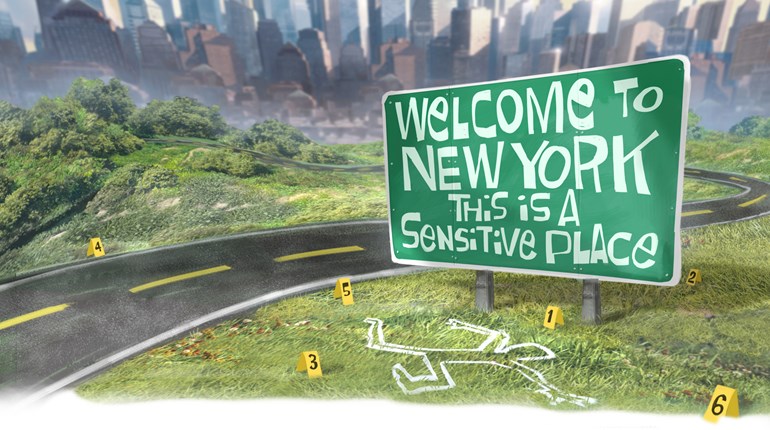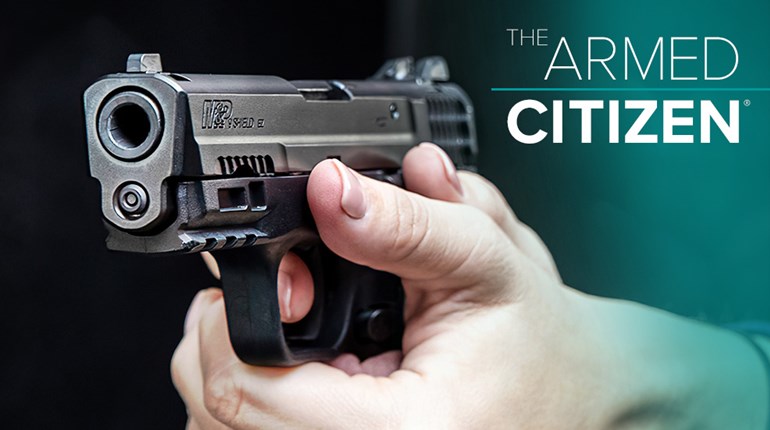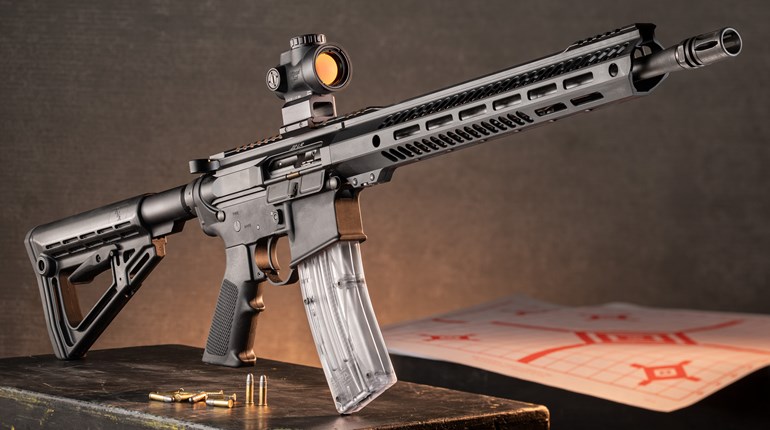
All politics aren’t local anymore—at least that is what Democrats in the U.S. House of Representatives now think.
“House Democrats are warming to gun-control legislation once considered risky for all but the safest incumbents,” reports The Wall Street Journal.
Reuters went even further: “At the federal level, where Democrats captured the U.S. House of Representatives after eight years of Republican control, nearly 80 percent of the 62 freshman Democrats elected in November included gun safety in their campaign platforms, a Reuters analysis found. That far outstripped the proportion of candidates who did so in 2016.” (The emphasis on “gun safety” is mine, as it’s telling how swiftly the mainstream media supplanted “gun control” with “gun safety.” It doesn’t feel like a leap to say they did this to keep in step with the focus-group-tested messaging from gun-control groups, or as they now put it: “gun-safety groups.”)
Sadly, even The Wall Street Journal uses the phrase “gun safety” as if it’s a synonym for the less-popular phrase “gun control.” Do they think the NRA’s rules of gun safety are some kind of gun control? Both sides of the media spectrum shouldn’t fall for this propaganda.
But let’s get to the overreach of the Democrats who control the House.
Right now even some of the House Democrats in “swing districts”—such as those who just defeated GOP incumbents—are saying they’d support a new federal ban on so-called “assault weapons.” (“Assault weapon” is in quotes because the only way to define “assault weapon” is with a political definition, as outlined in a specific piece of legislation. The previous federal ban and current state bans all use(d) different definitions because there is no real way to clearly define a vacuous political term that seeks to ban some of America’s most popular firearms.)
So, “Yes,” Speaker of the House Nancy Pelosi (D-Calif.) and much of her caucus are saying they want to pass another arbitrary ban on modern sporting rifles. They want to do this even though the last one (from 1994–2004) had no impact on crime, even though the FBI’s “Uniform Crime Reports” again and again show all rifles—they don’t break out so-called “assault weapons,” maybe because they don’t even know how to define the term—are used in less than three percent of homicides annually in the United States and even though they must know semi-automatic firearms are the most popular firearm type sold today.
“For Democrats, such legislation has long been considered a gamble, with its potential to trigger the wrath of the National Rifle Association and voters swayed by the gun lobby,” says The Wall Street Journal.
They want to do this even though the Republican-controlled Senate is unlikely to take up such legislation—even if passed in the House—before the 2020 election. Clearly, the Democratic leadership in the House sees this issues as a good one to run on nationally in 2020.
This has happened before.
After the 1994 Assault Weapons Ban was passed by Congress and signed by then-President Bill Clinton, a wave of Republicans won election in a midterm. This was the “Gingrich Revolution” that led to the “Contract with America.” Later, in 2000, Al Gore made gun control a big part of his campaign; as a result, he lost his own state and the presidency with it. Hillary Clinton did the same thing in the last election cycle. She lost a lot of votes—particularly in Pennsylvania and the Upper Midwest—and with them the election.
Democrats in purple districts have undergone the same fate after they turned on American freedom. The so-called “Blue Dog Democrats” all but went extinct after then-President Barack Obama turned the Democrat Party sharply to the left.
During the decades covered here, the number of gun owners in America hasn’t dipped. There are more gun owners now than ever before. I’ll dig deep into those numbers in an upcoming column, but it is worth saying here how unfortunate it is that so many Democrats again think running against American liberty is a winning issue. It is really unfortunate because this tactic simply attempts to divide Americans on this issue instead of embracing real solutions that are known.
Meanwhile, as this was being written, the House Judiciary Committee, controlled by Democrats, was scheduled to vote on “universal” background-check legislation—in quotes because how can it be “universal” if criminals by definition won’t submit to it? House Speaker Pelosi says she expects this bill to be voted on by the entire House this month. Again, it is unlikely to be taken up by the Senate—though that is less clear with this bill—so this is probably just about positioning for the 2020 election.
Most-Revealing Anti-Freedom Quote of the Week
“We want to start with the very obvious and very smart thing to do, which is close the background-check loophole.” –Rep. Madeleine Dean (D-Penn.), a member of the House Judiciary Committee. (So American freedom, such as loaning a rifle to your best friend to go hunting is a “loophole” according to Dean and other Democrats.)
Best Pro-Freedom Quote of the Week
“I fully expect the Democratic House majority to overreach. Middle America includes a lot of people who happen to be sportsmen.” –Rep. Steve Stivers (R-Ohio
Why the Supreme Court’s Decision to Hear an NYC Gun Case Could Be Big
Last month the U.S. Supreme Court finally opted to hear another Second Amendment case.
The case is New York State Rifle & Pistol Association Inc. v. New York City.
Oddly, the Supreme Court has been denying other appeals on Second Amendment issues since the Supreme Court decided McDonald v. Chicago in 2010. It’s odd because in the years since lower courts have been literally calling each other out in competing opinions (some were pro-freedom while others clearly disregarded the Supreme Court’s Heller and McDonald decisions).
New York City has particularly acted as if the Heller decision, which found that the Second Amendment is indeed an individual right, is irrelevant. Soon after Heller, the McDonald decision applied this constitutional right to state and local governments, meaning they are also restricted by this protection of our liberty.
The Supreme Court even passed on hearing Peruta v. San Diego County (2016). Peruta dealt with whether a local government can decide that people can only utilize their Second Amendment rights if they can prove they really, really need to be able to carry a gun. This was a telling case, as what other constitutional right has to meet such a standard? Can the government take away the freedom of religion from people who can’t prove they really need their faith? How about someone’s freedom of speech or their right to due process under the law?
This New York State Rifle & Pistol Association Inc. v. New York City case the Supreme Court has opted to hear might answer this question.
Incredibly, right now a resident of the Bronx, for example, isn’t even allowed to transport an unloaded handgun that is locked in a case a few miles north to shoot at a range in Westchester County. New York City has two basic handgun permits: a carry permit (this is very hard to get unless someone has political connections) and a premises permit (also hard to get, this permit doesn’t allow a person to carry the gun for self-defense, but only allows them to transport it unloaded and in a locked case to one of seven approved ranges located in NYC).
The Second Amendment, of course, protects a right to “bear arms,” as in to carry them. Our Second Amendment rights don’t end at our front doors. The Heller and McDonald decisions upheld this basic right. Hopefully the Supreme Court will insist that law-abiding citizens get to utilize their constitutional right to bear arms.

































